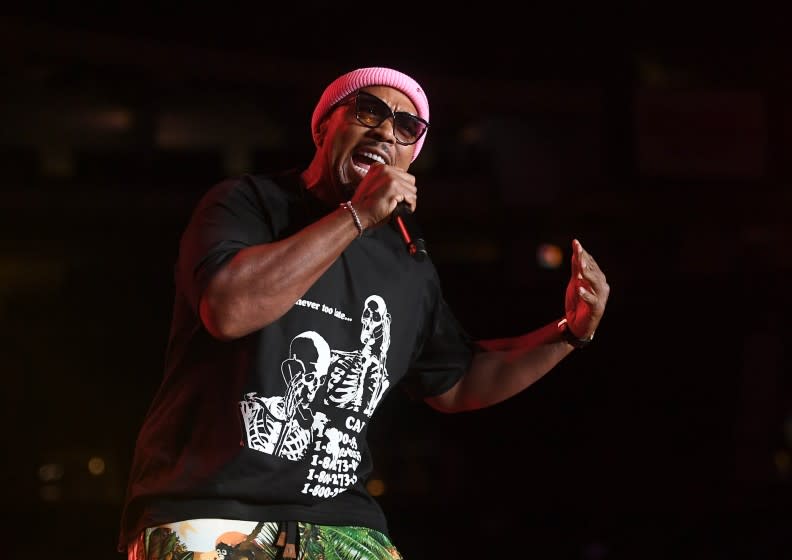Triller acquires Timbaland and Swizz Beatz's music platform Verzuz

Triller said Tuesday it acquired online music platform Verzuz, as it expands its partnership with prominent music artists.
Under the deal, Verzuz's creators, music artists Timbaland and Swizz Beatz, will become shareholders in Triller's L.A.-based parent company, Triller Network.
Triller did not disclose the financial terms of the acquisition. Timbaland and Swizz Beatz gave a portion of their equity stake to 43 performers who have participated in Verzuz, including John Legend, Alicia Keys and DMX.
"To have partners in Triller who share our vision, specifically to celebrate and elevate the amazing artists who continue to shape culture around the world and give the consumer more direct access, is game-changing," said Swizz Beatz and Timbaland in a statement.
The acquisition will help elevate Triller's status as the social video app has fallen in download rankings since it was the most downloaded iPhone app on Aug. 1 last year in the U.S., according to San Francisco-based app analytics firm App Annie. Triller was ranked 390th in the U.S. for iPhone apps on Sunday, according to App Annie data.
The company last year positioned itself as an alternative to viral video app TikTok, which was in danger of getting banned in the U.S. due to the Trump administration's security concerns about TikTok's ties to China. Since then, TikTok — which denied that it gave U.S. user information to the Chinese government — has regained its popularity and was able to suspend efforts to yank it from U.S. app stores through litigation. With the TikTok ban no longer imminent, analysts said that has hurt competitors like Triller.
Most recently, Triller has expanded its footprint in live performances. In November, the company featured a pay-per-view fight between Mike Tyson and Roy Jones Jr., reportedly paying $50 million to broadcast it. And last month, the company launched TrillerTV, announcing a lineup of more than 40 shows featuring Jennifer Lopez, the D'Amelio family and other influencers.
"We see ourselves as a cultural ecosystem," said Bonin Bough, Triller's chief growth officer at Interactive Advertising Bureau's annual leadership meeting on Monday. "We continue to look to create a brand... kind of the MTV of this generation where brand marketers, culture creators, influencers can stand behind and stand alongside."
Verzuz, which launched in March 2020, has featured music battles between prominent artists such as Brandy and Monica, who had sung about wanting the same guy in the duet "The Boy is Mine." Their Verzuz battle drew more than 1.2 million viewers.
With many concerts and live events canceled or delayed due to the pandemic, fans have turned to watching performances remotely. Verzuz has had more than 5 billion impressions and plans to expand into other areas like comedy, according to a statement.
“There is no more disruptive and innovative brand in music today than Verzuz,” said Bobby Sarnevesht, Triller's executive chairman, in a statement.
In August, Triller said it raised nearly $100 million and was in the process of raising $250 million more from investors. Triller's majority owner is Proxima Media, an investment company led by Ryan Kavanaugh. Kavanaugh was once the head of mini-studio Relativity Media, which later entered bankruptcy and underwent restructuring.
Last month, Triller was at odds with Universal Music Group, which accused Triller of withholding payments from artists, causing it to pull its music from the app. UMG later announced it expanded its partnership with TikTok, allowing users to pull from its entire music catalog. Triller denied that it had withheld payments and claimed it did not need a deal with UMG "to continue operating as it has been since the relevant artists are already shareholders or partners on Triller, and thus can authorize their usage directly."
In November, Triller also raised eyebrows when it planned during the pandemic to host a party that was later canceled.
This story originally appeared in Los Angeles Times.

 money
money 